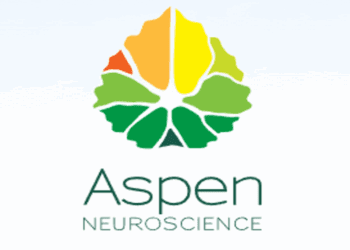Study: “Single-Cell RNA-seq reveals transcriptomic modulation of Alzheimer’s disease by activated protein C”
Publisher: Aging
Published date: February 2024
PubMed link to study: https://pubmed.ncbi.nlm.nih.gov/38385967/
Recent research into Activated Protein C (APC) offers new insights into its potential to alter the progression of Alzheimer’s disease. By targeting neuroinflammation and amyloid-beta accumulation, which are hallmarks of Alzheimer’s, APC treatment has shown promise in reducing these pathological features and improving cognitive functions in animal models. This research was conducted using advanced single-cell RNA sequencing techniques.
Feel welcome to share your own thoughts on this research in the comment section below as well. I will be happy to discuss and learn more about how you see its potential in this field.
Understanding the Basics of Alzheimer’s Disease
Alzheimer’s disease (AD) is primarily characterized by the accumulation of amyloid-beta (Aβ) plaques and neuroinflammation, both of which are believed to facilitate the progressive degeneration of neurons, leading to progressive cognitive decline. This pathology not only disrupts memory but also the very fabric of cognitive function, leading to significant lifestyle changes and challenges for those affected. AD is currently the 6th leading cause of death in the United States.
While numerous treatments have focused on these aspects, none have effectively halted the disease’s progression. However, these recent insights into Activated Protein C (APC), known for its anti-inflammatory and neuroprotective properties, has the potential to bring new hope to this challenging field.
What is Activated Protein C
Activated Protein C (APC), a plasma protein with a history of use in treating ischemic conditions and stroke, has been studied for its potential effects on Alzheimer’s disease through advanced biotechnological methods. Employing single-cell RNA sequencing, researchers have examined how APC impacts the cellular environment within the brain of Alzheimer’s disease models—specifically transgenic mice that express human AD characteristics.
How can Activated Protein C Fight Alzheimer’s Disease
The study focused on the transcriptional changes induced by APC treatment in various brain cell types. This research was conducted on transgenic mice genetically predisposed to Alzheimer’s, known as 5xFAD mice, which mimic many of the human characteristics of the disease. By treating these mice with APC, researchers observed significant alterations in the transcriptional profiles of the various brain cells.
Key findings indicated that APC significantly modifies the expression of genes associated with AD progression. Notably, APC treatment led to reduced amyloid-beta production and inflammation, which are critical in the pathogenesis of Alzheimer’s disease.
The single-cell RNA sequencing approach provided a detailed view of these changes at the cellular level. By examining individual cells, the researchers could observe APC’s effects on different cell populations, including neurons, astrocytes, and microglia. The results showed that APC not only altered the inflammatory profile but also restored some cellular functions to near-normal levels. This is quite remarkable as it suggest that APC not only hampers the progression of AD but may also reverse some of its effects.
Research Implications and Future Directions
This study stands out due to its use of single-cell RNA sequencing, a technique that allows researchers to observe the effects of APC at an unprecedented level of detail. By analyzing individual cells within the brain, the research provides a detailed map of how different cell types—neurons, astrocytes, and microglia—respond to treatment. This approach reveals that APC can significantly alter the cellular landscape of an Alzheimer’s-afflicted brain, hinting at its potential to be developed into a robust therapeutic option.
These insights into APC’s mechanism of action are crucial for developing more effective treatments for Alzheimer’s disease. The ability of APC to modulate gene expression and reduce pathological features such as amyloid-beta accumulation and neuroinflammation suggests it could be a potent therapeutic agent. However, further research is needed to translate these findings from animal models to human clinical trials.
The continued exploration of APC in Alzheimer’s research represents a promising path towards developing a treatment that could potentially modify the disease process itself. As the research progresses, it will be critical to confirm these findings in human subjects and to determine the safety and efficacy of APC in broader clinical settings.
In Summary
The study of Activated Protein C in the context of Alzheimer’s disease underscores the importance of innovative approaches in medical research. By harnessing the properties of APC and applying cutting-edge technologies like single-cell RNA sequencing, researchers are opening new pathways that could one day lead to significant advances in treatment for this challenging and widespread condition.




